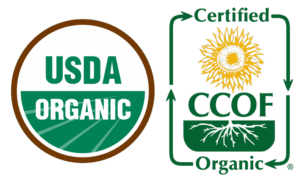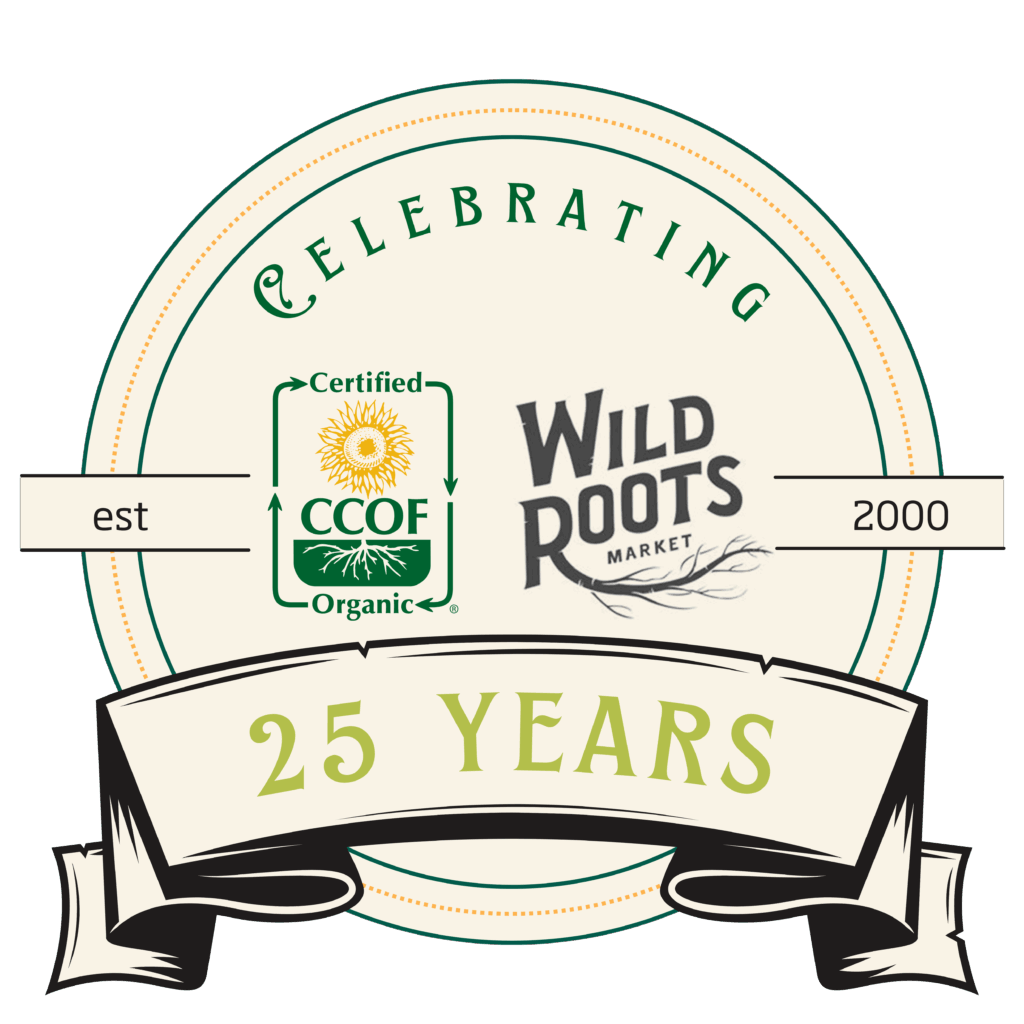So you’re not ready to become a full-time farmer on top of your other life commitments. That’s okay!
You don’t have to personally follow a tomato from its seed to your child’s plate to know that it hasn’t been sprayed with toxic chemicals or sewage sludge, and to ensure it’s full of healthy nutrients and flavor.
There’s already a label for that – USDA Organic.
A lot of people don’t know what organic means. They don’t realize that the USDA organic label cuts through the clutter of greenwashed, meaningless supermarket labels like “all natural,” “pesticide-free,” and “cage free.” Organic food costs a little more because it’s worth a lot more.
Let’s talk about what you get with organic.
The USDA organic label is the ONLY farming practice label that is backed by federal law. When you see the USDA Organic seal you can be sure that your organic product was produced using sustainable practices that work with the land.
The USDA organic label provides confidence that:
- Organic farmers protect our land and water using natural fertilizers and eco-friendly pest control methods.
- Organic farmers protect animal welfare and ensure livestock and animals like cows, sheep, and chickens, can roam freely outdoors and are not given growth hormones or antibiotics.
- Organic food and products are always made without GMOs and artificial colors, flavors, or preservatives.
How do you know it’s really organic?
When you’re shopping, check labels for the USDA organic seal or the CCOF Certified Organic logo. Unlike unregulated terms like “natural”, the word “organic” and the organic seal are trustworthy proof that the product has met very high, specific USDA standards.

It’s not just empty words. Organic farms and businesses are inspected yearly (including some unannounced inspections) by USDA accredited certifiers, like CCOF. If they aren’t complying with organic regulations, they’re not allowed to sell their products with an organic label. In fact, the USDA can enforce criminal penalties against anyone who commits organic fraud!
The certification and inspection process allows products carrying the USDA Organic label to be traced from farm to plate. Organic certifiers provide supply chain audits and organic farms and businesses must keep detailed records of the organic products they produce and sell, so that you can be sure that what you are buying is genuinely organic.
For example, take an organic fruit snack made with mangoes grown in Mexico. It must be certified and uphold the same USDA National Organic Program (NOP) standards that producers here in the U.S. maintain. If growing, processing, or packaging in Mexico are done by different companies, each one must have a direct agreement with an organic certification agency and a valid organic certificate must follow the mangoes through each production step. After entering the U.S., the mangoes might get repackaged in smaller quantities, blended, dried, or rebranded under different company names. The mangoes pass through brokers, storage facilities, and processors as they eventually become the organic treats you see on store shelves. At every single step, every single entity involved must continually prove that they comply with all USDA organic regulations. Every time an organic item is processed, packaged, labeled, or imported, it is under the careful eye of an accredited certification agency like CCOF.
We do this so you don’t have to grow your own backyard mangoes and bananas (good luck if you live somewhere chilly!) That organic smoothie was processed in a kitchen like yours, just with bigger blenders. Enjoy!
When you buy organic, you’re buying peace of mind and securing a sustainable future for American farmland. It costs a little more because it guarantees a lot more. Learn more about why it’s important to choose your farmer by choosing organic!

